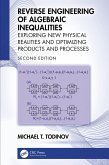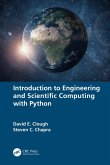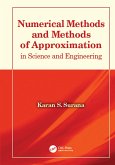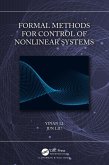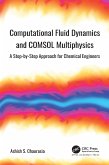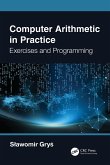Michael T. Todinov
Reverse Engineering of Algebraic Inequalities (eBook, ePUB)
Exploring New Physical Realities and Optimizing Products and Processes
88,95 €
88,95 €
inkl. MwSt.
Sofort per Download lieferbar

44 °P sammeln
88,95 €
Als Download kaufen

88,95 €
inkl. MwSt.
Sofort per Download lieferbar

44 °P sammeln
Jetzt verschenken
Alle Infos zum eBook verschenken
88,95 €
inkl. MwSt.
Sofort per Download lieferbar
Alle Infos zum eBook verschenken

44 °P sammeln
Michael T. Todinov
Reverse Engineering of Algebraic Inequalities (eBook, ePUB)
Exploring New Physical Realities and Optimizing Products and Processes
- Format: ePub
- Merkliste
- Auf die Merkliste
- Bewerten Bewerten
- Teilen
- Produkt teilen
- Produkterinnerung
- Produkterinnerung

Bitte loggen Sie sich zunächst in Ihr Kundenkonto ein oder registrieren Sie sich bei
bücher.de, um das eBook-Abo tolino select nutzen zu können.
Hier können Sie sich einloggen
Hier können Sie sich einloggen
Sie sind bereits eingeloggt. Klicken Sie auf 2. tolino select Abo, um fortzufahren.

Bitte loggen Sie sich zunächst in Ihr Kundenkonto ein oder registrieren Sie sich bei bücher.de, um das eBook-Abo tolino select nutzen zu können.
The second edition of Reverse Engineering of Algebraic Inequalities is a comprehensively updated new edition demonstrating the exploration of new physical realities and creation of new knowledge in various unrelated domains of human activity through reverse engineering of algebraic inequalities.
- Geräte: eReader
- mit Kopierschutz
- eBook Hilfe
Andere Kunden interessierten sich auch für
![Reverse Engineering of Algebraic Inequalities (eBook, PDF) Reverse Engineering of Algebraic Inequalities (eBook, PDF)]() Michael T. TodinovReverse Engineering of Algebraic Inequalities (eBook, PDF)88,95 €
Michael T. TodinovReverse Engineering of Algebraic Inequalities (eBook, PDF)88,95 €![Introduction to Engineering and Scientific Computing with Python (eBook, ePUB) Introduction to Engineering and Scientific Computing with Python (eBook, ePUB)]() David E. CloughIntroduction to Engineering and Scientific Computing with Python (eBook, ePUB)96,95 €
David E. CloughIntroduction to Engineering and Scientific Computing with Python (eBook, ePUB)96,95 €![Numerical Methods and Methods of Approximation in Science and Engineering (eBook, ePUB) Numerical Methods and Methods of Approximation in Science and Engineering (eBook, ePUB)]() Karan S. SuranaNumerical Methods and Methods of Approximation in Science and Engineering (eBook, ePUB)161,95 €
Karan S. SuranaNumerical Methods and Methods of Approximation in Science and Engineering (eBook, ePUB)161,95 €![Mathematics Pocket Book for Engineers and Scientists (eBook, ePUB) Mathematics Pocket Book for Engineers and Scientists (eBook, ePUB)]() John BirdMathematics Pocket Book for Engineers and Scientists (eBook, ePUB)49,95 €
John BirdMathematics Pocket Book for Engineers and Scientists (eBook, ePUB)49,95 €![Formal Methods for Control of Nonlinear Systems (eBook, ePUB) Formal Methods for Control of Nonlinear Systems (eBook, ePUB)]() Yinan LiFormal Methods for Control of Nonlinear Systems (eBook, ePUB)54,95 €
Yinan LiFormal Methods for Control of Nonlinear Systems (eBook, ePUB)54,95 €![Computational Fluid Dynamics and COMSOL Multiphysics (eBook, ePUB) Computational Fluid Dynamics and COMSOL Multiphysics (eBook, ePUB)]() Ashish S. ChaurasiaComputational Fluid Dynamics and COMSOL Multiphysics (eBook, ePUB)144,95 €
Ashish S. ChaurasiaComputational Fluid Dynamics and COMSOL Multiphysics (eBook, ePUB)144,95 €![Computer Arithmetic in Practice (eBook, ePUB) Computer Arithmetic in Practice (eBook, ePUB)]() Slawomir GrysComputer Arithmetic in Practice (eBook, ePUB)33,95 €
Slawomir GrysComputer Arithmetic in Practice (eBook, ePUB)33,95 €-
-
-
The second edition of Reverse Engineering of Algebraic Inequalities is a comprehensively updated new edition demonstrating the exploration of new physical realities and creation of new knowledge in various unrelated domains of human activity through reverse engineering of algebraic inequalities.
Dieser Download kann aus rechtlichen Gründen nur mit Rechnungsadresse in A, B, BG, CY, CZ, D, DK, EW, E, FIN, F, GR, HR, H, IRL, I, LT, L, LR, M, NL, PL, P, R, S, SLO, SK ausgeliefert werden.
Produktdetails
- Produktdetails
- Verlag: Taylor & Francis eBooks
- Erscheinungstermin: 30. Dezember 2024
- Englisch
- ISBN-13: 9781040261552
- Artikelnr.: 72255388
- Verlag: Taylor & Francis eBooks
- Erscheinungstermin: 30. Dezember 2024
- Englisch
- ISBN-13: 9781040261552
- Artikelnr.: 72255388
- Herstellerkennzeichnung Die Herstellerinformationen sind derzeit nicht verfügbar.
Michael T. Todinov is a professor of mechanical engineering at Oxford Brookes University, UK, where he teaches reliability engineering, engineering mathematics, and advanced stress analysis. He holds a PhD in mechanical engineering and a higher doctorate, equivalent to a DSc, in mathematical modeling.
Prof. Todinov has pioneered innovative research in several areas, including reverse engineering of algebraic inequalities, domain-independent methods for reliability improvement, analysis and optimization of repairable flow networks, reliability analysis based on the cost of failure, and fracture statistics controlled by defects.
Michael Todinov is a recipient of a prestigious award from the Institution of Mechanical Engineers (UK) for his work in risk reduction in mechanical engineering.
Prof. Todinov has pioneered innovative research in several areas, including reverse engineering of algebraic inequalities, domain-independent methods for reliability improvement, analysis and optimization of repairable flow networks, reliability analysis based on the cost of failure, and fracture statistics controlled by defects.
Michael Todinov is a recipient of a prestigious award from the Institution of Mechanical Engineers (UK) for his work in risk reduction in mechanical engineering.
1. Fundamental Approaches in Modelling Real Systems and Processes by Using
Algebraic Inequalities: The Principle of Consistency for Algebraic
Inequalities 2. Basic Algebraic Inequalities Used in Reverse Engineering
and Their Properties 3. Obtaining New Physical Properties by Reverse
Engineering of Algebraic Inequalities 4. Light-Weight Designs and Improving
the Load-Bearing Capacity of Structures by Reverse Engineering of Algebraic
Inequalities 5. Reliability-Related Reverse Engineering of Algebraic
Inequalities 6. Enhancing the Reliability of Series-Parallel Systems with
Multiple Redundancies by Reverse Engineering of Algebraic Inequalities 7.
Reverse Engineering of Algebraic Inequalities to Disprove System
Reliability Predictions Based on Average Component Reliabilities 8. Reverse
Engineering of the Inequality of Additive Ratios 9. Optimal Selection and
Expected Time of Unsatisfied Demand by Reverse Engineering of Algebraic
Inequalities 10. Enhancing Systems and Process Performance by Reverse
Engineering of Algebraic Inequalities Based on Sub-Additive and
Super-Additive Functions 11. Enhancing Decision-Making by Reverse
Engineering of Algebraic Inequalities 12. Generating New Knowledge by
Reverse Engineering of Algebraic Inequalities in Terms of Potential Energy
Algebraic Inequalities: The Principle of Consistency for Algebraic
Inequalities 2. Basic Algebraic Inequalities Used in Reverse Engineering
and Their Properties 3. Obtaining New Physical Properties by Reverse
Engineering of Algebraic Inequalities 4. Light-Weight Designs and Improving
the Load-Bearing Capacity of Structures by Reverse Engineering of Algebraic
Inequalities 5. Reliability-Related Reverse Engineering of Algebraic
Inequalities 6. Enhancing the Reliability of Series-Parallel Systems with
Multiple Redundancies by Reverse Engineering of Algebraic Inequalities 7.
Reverse Engineering of Algebraic Inequalities to Disprove System
Reliability Predictions Based on Average Component Reliabilities 8. Reverse
Engineering of the Inequality of Additive Ratios 9. Optimal Selection and
Expected Time of Unsatisfied Demand by Reverse Engineering of Algebraic
Inequalities 10. Enhancing Systems and Process Performance by Reverse
Engineering of Algebraic Inequalities Based on Sub-Additive and
Super-Additive Functions 11. Enhancing Decision-Making by Reverse
Engineering of Algebraic Inequalities 12. Generating New Knowledge by
Reverse Engineering of Algebraic Inequalities in Terms of Potential Energy
1. Fundamental Approaches in Modelling Real Systems and Processes by Using
Algebraic Inequalities: The Principle of Consistency for Algebraic
Inequalities 2. Basic Algebraic Inequalities Used in Reverse Engineering
and Their Properties 3. Obtaining New Physical Properties by Reverse
Engineering of Algebraic Inequalities 4. Light-Weight Designs and Improving
the Load-Bearing Capacity of Structures by Reverse Engineering of Algebraic
Inequalities 5. Reliability-Related Reverse Engineering of Algebraic
Inequalities 6. Enhancing the Reliability of Series-Parallel Systems with
Multiple Redundancies by Reverse Engineering of Algebraic Inequalities 7.
Reverse Engineering of Algebraic Inequalities to Disprove System
Reliability Predictions Based on Average Component Reliabilities 8. Reverse
Engineering of the Inequality of Additive Ratios 9. Optimal Selection and
Expected Time of Unsatisfied Demand by Reverse Engineering of Algebraic
Inequalities 10. Enhancing Systems and Process Performance by Reverse
Engineering of Algebraic Inequalities Based on Sub-Additive and
Super-Additive Functions 11. Enhancing Decision-Making by Reverse
Engineering of Algebraic Inequalities 12. Generating New Knowledge by
Reverse Engineering of Algebraic Inequalities in Terms of Potential Energy
Algebraic Inequalities: The Principle of Consistency for Algebraic
Inequalities 2. Basic Algebraic Inequalities Used in Reverse Engineering
and Their Properties 3. Obtaining New Physical Properties by Reverse
Engineering of Algebraic Inequalities 4. Light-Weight Designs and Improving
the Load-Bearing Capacity of Structures by Reverse Engineering of Algebraic
Inequalities 5. Reliability-Related Reverse Engineering of Algebraic
Inequalities 6. Enhancing the Reliability of Series-Parallel Systems with
Multiple Redundancies by Reverse Engineering of Algebraic Inequalities 7.
Reverse Engineering of Algebraic Inequalities to Disprove System
Reliability Predictions Based on Average Component Reliabilities 8. Reverse
Engineering of the Inequality of Additive Ratios 9. Optimal Selection and
Expected Time of Unsatisfied Demand by Reverse Engineering of Algebraic
Inequalities 10. Enhancing Systems and Process Performance by Reverse
Engineering of Algebraic Inequalities Based on Sub-Additive and
Super-Additive Functions 11. Enhancing Decision-Making by Reverse
Engineering of Algebraic Inequalities 12. Generating New Knowledge by
Reverse Engineering of Algebraic Inequalities in Terms of Potential Energy

